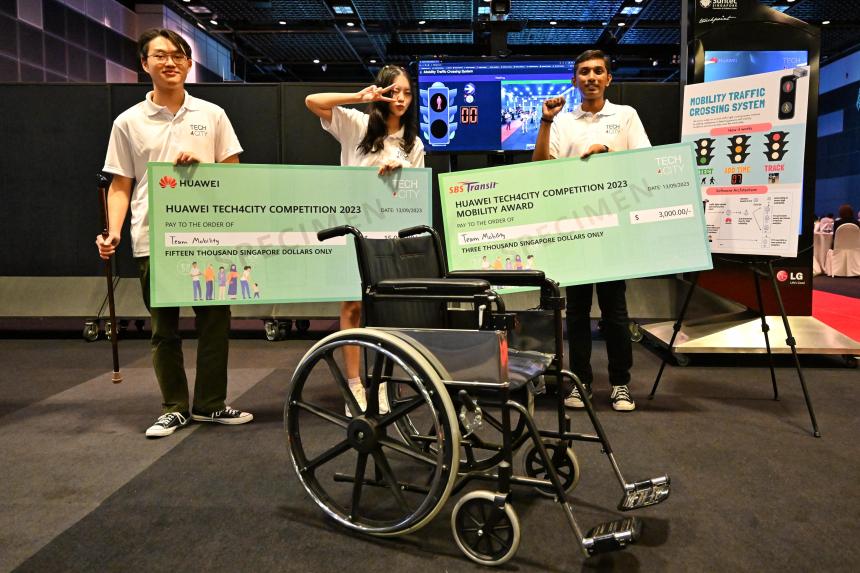SINGAPORE – The elderly and disabled may get more time in future to cross the road at traffic light junctions with the use of an artificial intelligence (AI) system that can detect mobility aids such as wheelchairs.
The system, developed by three 18-year-old students from the Institute of Technical Education College East, beat entries from 143 other teams to clinch the top prize in tech firm Huawei’s Tech4City competition held in Singapore.
Now in its second year, the competition aims to get young people to come up with creative solutions using digital technology.
The top prize-winning Team Mobility – comprising Zamien Ng, Cleophas Maria Ow and Praveen Nagatheran – used Huawei’s cloud service as well as its ModelArts AI development platform to develop the intelligent traffic light system.
The system can detect commonly used mobility aids such as wheelchairs in real time and extend the crossing time for users of such devices.
Extensive testing by the team – verified by Huawei – showed that the system was able to detect wheelchairs with 83 per cent accuracy, while walking aids had an average accuracy of 84.9 per cent.
Team Mobility won the top prize of $15,000 for its entry, Mobility Traffic Crossing System, during the finals of the competition, held at the Suntec Singapore Convention and Exhibition Centre on Wednesday.
The team also won an additional cash prize of $3,000 in the best innovation in mobility category, which was sponsored by transport operator SBS Transit, one of the event’s partners.
“We realised that people with mobility issues actually struggle quite a bit with getting on the bus, getting on the MRT and crossing roads. They need extra time, they need more help,” said Mr Ng.
While the existing Green Man Plus scheme gives senior citizens and disabled pedestrians more time to cross the road, this requires them to tap their concession cards on card readers at traffic lights.
Team Mobility’s system automatically recognises such pedestrians without the need for the concession cards.
In developing the system, the team encountered challenges such as getting it to recognise a black walking stick against a dark background.
Overcoming this challenge required training the AI with more images to help it to accurately detect such walking sticks, said Mr Praveen.
Source link
credite

